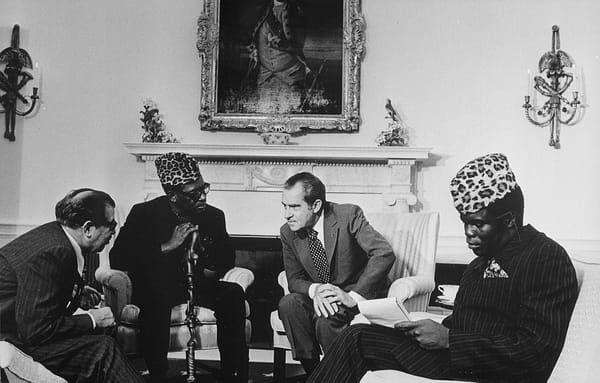The Capabilities Approach and the Problem of Perfectionism

Philosophers who study justice theorize how societies can treat their members fairly and increase everyone’s well-being. One of the most famous frameworks for approaching these questions, the capabilities approach, was developed primarily by philosopher Martha Nussbaum and philosopher-economist Amartya Sen.
Some philosophers have argued that there is, ultimately, only one kind of value — for example, that something is only good insofar as it brings us pleasure. The capabilities approach, however, is value pluralist — that is, it holds that there are many different kinds of value. In capabilities jargon, these diverse values are functionings and the capabilities to achieve (or not to achieve, according to one’s informed and empowered choice) these functionings.
The capabilities approach concretely considers how life’s diverse goods and necessities — food, shelter, quality of life, opportunities for work and leisure, and the like — are achieved in actual practice. The focus on actual ability to achieve functionings, in Sen’s words the various “beings and doings” we may have reason to value, means attending carefully not just to formal laws and procedures, but to the social context in which we live our lives, including how culture, institutions, family dynamics, and forms of oppression influence not only what is achievable in our lives but what we imagine is achievable.
Critics level charges of perfectionism — roughly the idea that there is one objectively best way of life — because of the wide and deep scope of the capabilities approach: wide in the areas of life it assesses, deep in that even an individual’s understanding of their own life is a subject of inquiry. Martha Nussbaum’s capabilities liberalism, for example, involves explicitly theorizing about what features of a human life are essential for that life to be well-lived. Nussbaum asks us to consider what functionings and capabilities are necessary for “truly human flourishing.” But, the critic insists, this is actually quite far down the road of a comprehensive worldview, something more akin to Roman Catholicism in its scope rather than a more limited theory of just relations between persons or just institutions. Perfectionism would be a problem for a liberal theory because one of liberalism’s core motivations is figuring out how to get people with diverse beliefs to live together peacefully.
One of the ways this perfectionism can manifest is ironically in the capabilitarian’s attempt to neutrally support the widest possible variety of flourishing lives as conceived from diverse persons. If one person’s conception of the good involves expensive skiing equipment, lift passes, and the like, then the capabilitarian is at pains to argue that the state isn’t ultimately responsible for securing these functionings, even during the season. The capabilities approach in general has some difficulty in halting the proliferation of capabilities: once you start naming capabilities, it’s not obvious where to stop.
Rutger Claassen, a capabilities theorist at Utrecht University, has attempted to chart a course around this proliferation problem by developing a “moderate perfectionist” capabilities theory in his book, Capabilities in a Just Society: A Theory of Navigational Agency. Claassen’s innovation is to reorient capabilities liberalism around a central capability — navigational agency — that must be developed and protected for all individuals. Navigational agency enables the individual to effectively navigate within and between social practices (more on this in a bit). This liberalism is still perfectionist to a limited degree because the cultivation of this kind of strong agency is a public endorsement of a liberal conception of the good and requires public procurement of whatever means are necessary for this cultivation. It’s far from merely procedural. But the perfectionism is moderate because the state limits its support to the cultivation of agency only, and abstains from support for different conceptions of the good life.
The medium of social practices
Claassen “socializes” liberalism by situating all morally relevant human action within social practices.
A social practice is a structure of actions held together by a set of common institutions, in which several agents cooperate to reach their ends. Structure means that actions obey more- or less-recognizable and stable patterns, which can be interpreted by the participants to orient themselves in the practice. Structure is brought about by institutions — i.e. The formal and informal rules (norms) that qualify actions within the practice as legitimate or illegitimate, desirable or undesirable, allowed or prohibited and so forth. Such institutions define roles of participants, in terms of the rights and duties they have to follow to be able to participate in the practice. All of this serves the purpose of allowing the participants to pursue certain ends. These concepts — institutions, roles, rights and duties, and ends — are the crucial components of a practice. Practices are often understood through the analogy of a game: they are cooperative structures in which participants pursue their ends, subject to the constraints presented by the rules of the game. [56] (emphasis his)
Capabilities liberalism has always stressed the social context over the abstract individualism of other forms of liberalism, especially in terms of not being satisfied with merely formal freedom in cases where a person is not able to effectively realize that freedom, whether due to lack of resources or to oppression. But Claassen’s situating not just liberalism but all of moral life within social practices provides a deep and satisfying theoretical basis for the social context. We are always already performing particular roles, following particular rules of particular social games. It’s especially intuitive from this social practices perspective that freedom involves developing individual capabilities and cultivating appropriate social practices and institutions. Freedom isn’t primarily about non-interference from others, though certain kinds of unfreedom can involve interference.
Navigational agency is appealing as a central pillar capability, and orienting the development of those capabilities that are necessary to engender such agency to sufficient levels in all individuals is a plausible priority. Claassen addresses the question of whether sufficiency — bringing everyone up to a minimal threshold — is the appropriate approach versus the prioritarian view of helping where help is most needed or where the most bang can be gotten for the proverbial buck. Claassen leverages both intuitions with a “weak sufficientarianism” that adopts prioritarian strategies where individuals or populations are not yet up to the minimum capabilities.
This hybrid priorities+sufficient thresholds approach features in Claassen’s interesting defense of property and economic rights. First, Claassen views various systems of property (private, common, public, open access, and corporate) as the necessary media in which many types of social practices are organized. This is the intrinsic component of the capability to hold property. Systems of property rights are also instrumentally justified as part of an efficiency principle to “choose the most efficient property-arrangement for each subsistence capability.” [184] As long as subsistence capabilities are not fully met for each person, prioritizing subsistence capabilities requires economic efficiency.
What is lost in moderating perfectionism
Claassen’s focus on the development of navigational agency is a fruitful path, but in my view he does not succeed in making it an adequate singular foundation for a moral political order. First, he gives up too much of what is most appealing about the capabilities approach by abjuring the bird’s eye view of comprehensive outcomes that is a hallmark of the capabilities approach. Sen, for example, emphasized that both final life outcomes as well as the processes by which they obtained matter. In focusing on whether or not everyone has navigational agency, Claassen tilts significantly toward the process-only view. Second, Claassen’s is an ideal theory that does not effectively account for deep political differences.
Claassen’s theory stipulates that legitimate state action must be justified as promoting or sustaining the development of navigational agency.
Political action serves to create the conditions for just living together of citizens. Justice is the only norm for political action; other, possibly conflicting norms (freedom, equality, efficiency, etc.) are to be understood as parts of the concept of justice (see Introduction). Given these assumptions, there is an endpoint to political action: to establish conditions of just living together between citizens. Political action should stop where this endpoint is reached. [114] (emphasis his)
As Claassen’s parenthetical comment suggests, the political domain under his theory can still be quite ambitious. Claassen’s embedding of human agency within social practices implies an expansive view of positive rights to both subsistence and political capabilities. But it’s unclear that certain perverse social relations and social outcomes could be adequately appraised by restricting ourselves to only the development of the individual’s agency. To see why, let’s reconsider Claassen’s definition of navigational agency.
If and to the extent that participational agents are able to solve these two problems [choosing which practices to participate in and dealing with conflicts between practices] themselves freely and autonomously, they are navigational agents. First, navigational agents are able to choose which practices to participate in — i.e. To make decisions about entry and exit in social practices. Second, navigational agents are able to resolve practical conflicts between the practices in which they participate on their own terms. [61]
Now consider systematic racial differences in comprehensive outcomes. In a developed economy where overt systems of racial oppression (e.g., unequal formal rights) have long been dismantled, racial inequality may linger by socio-economic inertia and pervasive but subtle bias. Members of historically marginalized groups in such a society could plausibly achieve genuine navigational agency — authoring their own lives and successfully entering, exiting, and reforming social practices at will — even while never closing health, wealth, and other gaps in comprehensive outcomes. The theory of navigational agency doesn’t seem to have the tools to identify group-based inequalities as problematic or any different from benign economic inequality arising by course from a dynamic commercial society. Of course it could be argued that a society that universally achieves navigational agency would have dealt with all the morally problematic elements of group-based inequality. But applying the theory of navigational agency to the actual world of historical and ongoing group-based oppression would seem to risk focusing on the trees at the expense of the forest.
The larger problem with the theory of navigational agency is the notion that the domain of the political can be neatly restricted. As mentioned above, on Claassen’s theory, legitimate political action is limited to developing and sustaining navigational agency. But such a limitation cannot survive in the real world. Even if an entire polity unanimously agreed to constrain the political domain in this way, future generations could not be stopped from exercising their navigational agency and reforming away that political proscription.
And there’s good reason for citizens to desire to expand the political realm. Environmental regulations come to mind as an example of a worthwhile field of political coordination that need not be reducible to navigational agency. While something like climate change is easily construed as ultimately really about preserving human habitability (subsistence capabilities), the same cannot be said for preventing species extinctions. Animal cruelty likewise has little to do with human agency, but I would hesitate to eliminate it as a legitimate political issue.
It’s also unreasonable to expect devout religious persons to leave their faith out of the voting booth. Religious commitments may compel some individuals to pursue political ends that are broader than sustaining navigational agency but are still within more traditional liberal boundaries. The theory of navigational agency as the sole justification for political action seems to require a good deal of agreement among citizens about the nature of the political. One of Claassen’s chief motivations was to moderate the perfectionism of capabilities liberalism in order to secure its place within liberal theory. But Claassen seems at risk of compromising liberalism from a different direction by leaving out too many reasonable conceptions of the good because of their political commitments.
It’s worth contrasting this again with Nussbaum’s perfectionist liberalism. She starts with a list of capabilities every human being should have to experience a truly human life with dignity and advances it provisionally like a bill of rights. She invites revisions from other cultures and other disciplines to avoid parochialism with the expectation that her list will be amended. Her capabilities liberalism is perfectionist in that she begins by thinking about the good life, but it is an open and adaptable perfectionism. How these political ideals are applied (or how they manifest) in particular political situations would of course vary, but it seems possible that Nussbaum’s perfectionist liberalism could be more conducive to accommodating diverse beliefs than Claassen’s moderate perfectionist liberalism. And accommodating diversity of comprehensive worldviews is a fundamental purpose of liberalism.
To return to the example of animal rights, it seems apparent that Claassen’s approach would exclude animals from the political domain. Animals are incapable of achieving navigational agency themselves because even if their behavior is situated in something analogous to social practices, it is doubtful they can navigate between social practices. And animal well-being is not plausibly related to human navigational agency.
Nussbaum permits the ethically charged topic of animal welfare within the political domain in at least three ways. First, one of her proposed capabilities is the ability to experience nature, and connect with other species. Second, in Frontiers of Justice she argues that while animals do not have the same capabilities as humans, they have a more limited set of capabilities that affords them their own dignity and warrants their inclusion in considerations of justice. This is arguably Nussbaum’s comprehensive worldview entering into her argument, and part of what makes her liberalism perfectionist. Finally, Nussbaum — and likewise Sen — simply does not draw a sharp boundary around the political, as capabilities form the minimum domain of political coordination rather than maximum.
Claassen has developed a powerful framework for operationalizing the sometimes vague appeals to “the social context” in much of the capabilities literature. By situating all morally and politically relevant action — and possibly all human action full stop, as even private actions are socially constructed to a significant degree and private thoughts are narrated in socially constructed language — in social practices, he lays the groundwork for conceiving of positive rights and positive freedom as access to effective institutions. Though Claassen does solve the capabilities proliferation problem, in doing so he invites alternative problems and jettisons some of the most attractive features of the capabilities approach. I think Claassen fails to make his case for the singular political importance of navigational agency, but he does make a powerful and conceptually fruitful case for it as a central pillar of human capabilities.
This review essay was originally published at Arc Digital.
Featured image is “Kandelaberlinde“, by YvoBentele.




